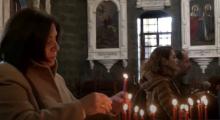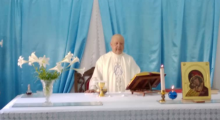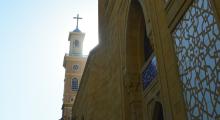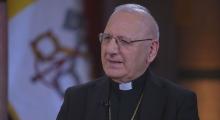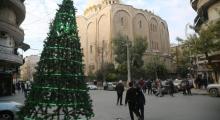Issued by the Catholic Center for Studies and Media - Jordan. Editor-in-chief Fr. Rif'at Bader - موقع أبونا abouna.org
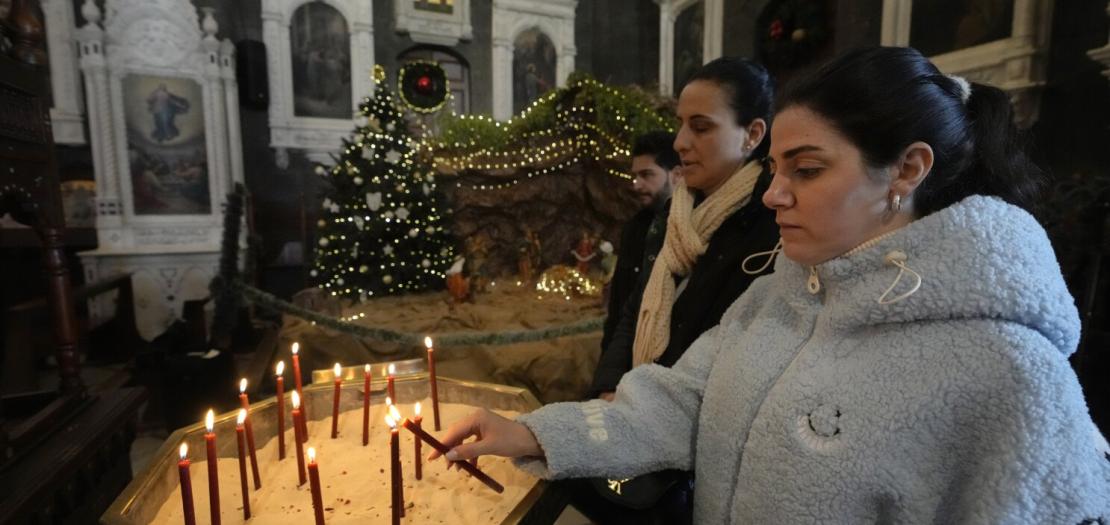
Archbishop Joseph Tobjie of Aleppo says Christians must play a role in building an inclusive and democratic society in Syria following the fall of Bashar al-Assad.
Christians made up about 10 per cent of the pre-war Syrian population but now make up less than 2 per cent, falling from 1.5 million in 2011 to just 300,000 in 2022.
Nevertheless, the archbishop said Syrian Christians need to take an active role in shaping the country’s future.
“We Christians cannot stand by as spectators,” he said, while admitting that Christians are not well-prepared for political engagement.
“For over 50 years, we were silenced and sidelined. But now is the time to rise to the challenge. We must lay the foundations for a state rooted in the common good, one that guarantees the dignity and rights of all citizens,” Tobjie said.
“We are a resilient people. We have survived 13 years of war, earthquakes, the pandemic and famine. It is not that we are used to catastrophe – no one can ever get used to such pain – but our faith sustains us,” he said.
“For us, it is vital not to feel alone. We thank Pope Francis for his unwavering calls for peace and for encouraging a peaceful and just process,” he said.
Assad’s forced departure followed a surprise offensive across the country by rebel groups, led by Hayat Tahrir al-Sham (HTS), which is associated with Islamist groups.
“From a security perspective, things are relatively calm here in Aleppo,” Tobjie told Vatican News.
“However, isolated acts of violence persist, and in Damascus, the situation appears far worse. Sadly, weapons remain widespread, even among children. Seeing a child carry a rifle is something no one should ever witness.”
The Maronite archbishop said Syria needs to be stabilised, both politically and socially. He expressed cautious optimism about the intentions of the rebel groups involved in Assad’s removal moving forward.
“The HTS group has made promises to respect all communities, including minorities, and so far, their actions are aligned with their words,” Tobjie told Vatican News.
“They treat us Christians with respect, and there is no form of persecution at present,” the archbishop said.
“Women, for example, are not forced to wear the veil, and there have been no significant social changes,” he added.
“I cannot be too optimistic nor too pessimistic. We must walk prudently, observing how the situation evolves daily.”
It has been reported that a mass grave which could contain the remains of thousands of people has been found outside Syria’s capital, Damascus.
The site is at al-Qutayfah, located 25 miles north of the capital, and is just one of several mass graves identified across the country believed to possibly hold collectively hundreds of thousands of bodies.
Assad and his father Hafez, who preceded him as president and died in 2000, are accused of turning Syria into a dictatorial country in which murder replaced the rule of law.
Ugur Umit Ungor, professor of genocide studies at the University of Amsterdam, told Al Jazeera that these mass graves “a reflection of the killing machine of the Assad regime”.
“The true scale of exactly how many mass graves are out there is only to be found in the archives of the Assad regime, that’s why it is absolutely crucial that they are handled in a professional way and that people don’t go pillaging them,” he said.
Tobjie spoke to Vatican News about the promises made by Syria’s interim Prime Minister Mohammed Al-Bashir who pledged to protect minorities, women and children, and to restore justice across the nation.
“These promises cannot just be propaganda. Without tangible progress, Syria will struggle to gain international recognition,” the archbishop said.
“The world is watching Syria now,” he said.


